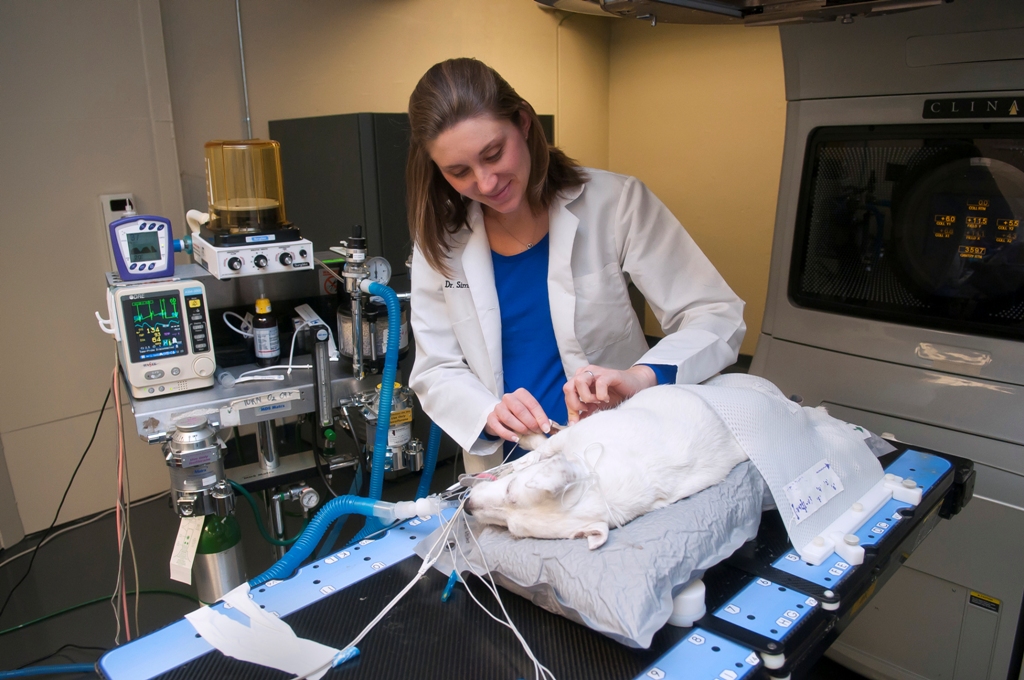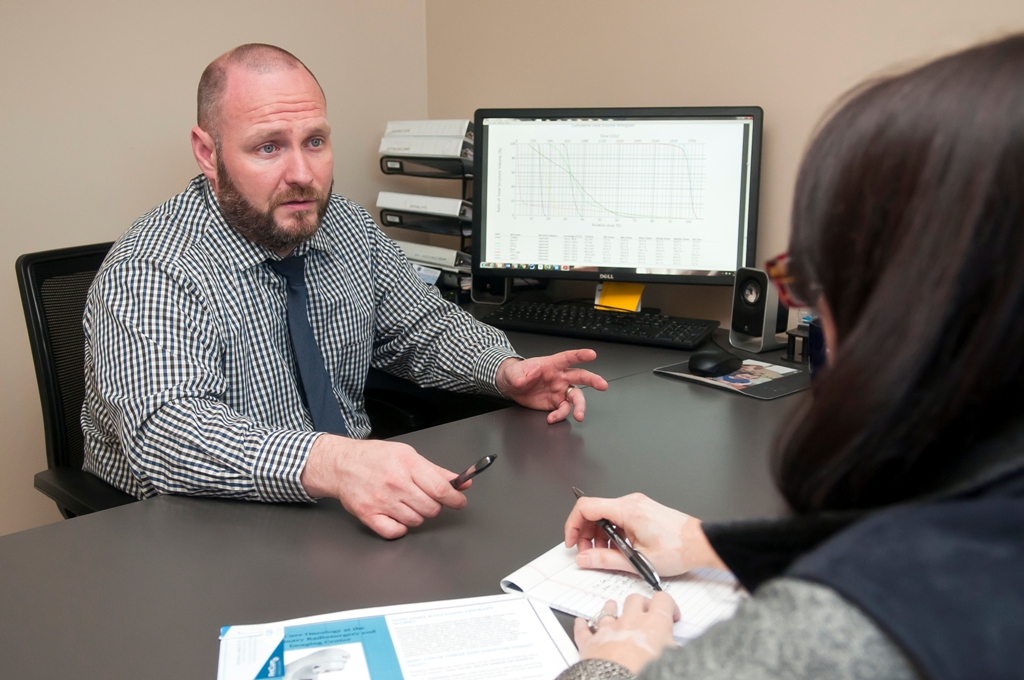Radiosurgery
Radiation therapy for pets has been available for decades. We are fortunate to have both the treatments and the machines that deliver the radiation. At PetCure Oncology at Veterinary Radiosurgery and Imaging Center, we are fortunate to have both state-of-the-art equipment and a state-of-the-art radiation team.
We are proud to boast our ability to do SRS (Stereotactic Radiosurgery). SRS is a form of radiation therapy that is currently offered in only a handful of North American veterinary centers and only in the most progressive human hospitals. SRS delivers a curative dose of radiation in only 1-3 treatments (as opposed to 12-21 treatments). Fewer anesthesic events are necessary and often fewer side effects are seen. Surgery (mass removal) should not be performed prior to this form of radiation.
Dr. Neal Mauldin is a leader in the veterinary radiation oncology field. He received his training and has collaborated on projects at NYC's Memorial Sloan Kettering Cancer Center. Dr. Mauldin is triple board certified in veterinary radiation oncology, medical oncology and internal medicine. The Center also boasts radiosurgery technicians that have come from the human sector.

In general, dogs and cats do very well with radiosurgery. Because we use the latest equipment for radiation planning and treatment, we are able to minimize side effects while maximizing the dose to the tumor site. Many different types of tumors can be treated with radiation. Some malignant tumors and most non-cancerous lesions can be cured. Others can go into remission for months to years.
We routinely treat radiosurgery cases on an outpatient basis. Your entire appointment (including the treatment) is typically 30 minutes in length. You may also drop your pet off with us for the day, if that is more convenient for you. There is no extra charge for this day stay.
Each patient is treated with the utmost in loving care. Your pet is seen as an extension of our "family." Every effort is made to make sure patients feel safe, loved and as comfortable as possible before, during and after their treatment. We hope to provide you with the same compassion during your visits with us that your pet receives.
What are the side effects of radiosurgery?Radiosurgery does not have the same side effects in animals as it does in people. Your pet should not have any nausea, vomiting or diarrhea. The most common side effects are a temporary "sunburn" effect or darkening of the skin, known as hyperpigmentation, and hair loss. The hair loss may be permanent, or the hair may grow back white. Side effects only happen in the area that is being treated.
How many radiation treatments are necessary?For SRS cases, a patient will receive 1-3 treatments. For standard radiation, radiating treatments typically vary between 12, 18 or 21. The frequency (amount) are called fractions. The number of fractions are dependent on your pet's tumor type and the goal of therapy. There are two different goals of radiosurgery: curative, meaning the tumor is cured or at least put into a remission, and palliative, meaning radiation is given to alleviate pain or other clinical symptoms to improve one's quality of life. Palliative radiation is often given in four fractions. Your veterinary oncologist will determine the best course of treatment for your pet.
Indications: Tumors that are responsive to SRS- Oral Melanomas
- Squamous cell carcinomas
- Fibrosarcomas
- Plasmacytomas
- Acanthomatous amelioblastomas
- Adenocarcinomas
- Nasal Tumors
- Meningiomas
- Pituitary Tumors
- Osteosarcomas
- Soft Tissue Sarcomas
- Fibrosarcomas
- Infiltrative Lipomas
- Mast Cell Tumors
- Spinal Tumors
- Anal Gland Adenocarcinomas
- Bladder Tumors
- Prostatic Tumors
Head and neck

Brain tumors
Thyroid Tumors
Extremity Tumors
Pelvic Canal Tumors

